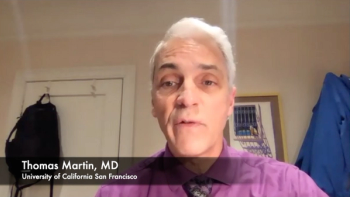
Thomas Martin, MD, spoke about which patient population with relapsed/refractory multiple myeloma would benefit most from treatment with ciltacabtagene autoleucel.

Your AI-Trained Oncology Knowledge Connection!


Thomas Martin, MD, spoke about which patient population with relapsed/refractory multiple myeloma would benefit most from treatment with ciltacabtagene autoleucel.
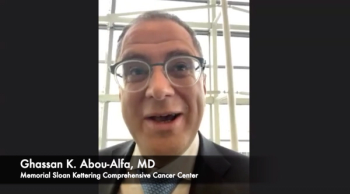
The combination of tremelimumab plus durvalumab improved survival for patients with unresectable hepatocellular carcinoma in the phase 3 HIMALAYA trial.

Phase 2 data highlighted a high complete response rate and undetectable minimal residual disease rate in patients with indolent clinical forms of mantle cell lymphoma who received ibrutinib plus rituximab.

A supplemental new drug application has been submitted to the FDA for ibrutinib to help treat pediatric and adolescent patients with chronic graft versus host disease.

Ofer Sharon, MD, spoke about the PROphet diagnostic platform for non–small cell lung cancer and the latest interim results from the prospective PROPHETIC trial in the most recent episode of CancerNetwork’s® "Oncology Peer Review On-The-Go" podcast.

The inaccuracy of standard immunohistochemistry testing to identify ERBB2-low breast cancer could lead to real-world mismanagement of patients who may be eligible for fam-trastuzumab deruxtecan-nxki.

Patients with intermediate- or high-risk primary or secondary myelofibrosis with a low platelet count may derive benefit from treatment with pacritinib following its accelerated approval by the FDA.
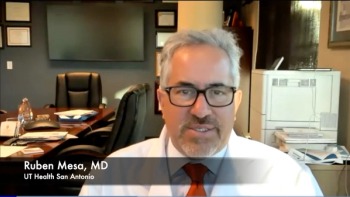
Ruben Mesa, MD, spoke about the accelerated approval of pacritinib and its importance for the treatment of myelofibrosis with severe thrombocytopenia.

Patients with heavily pretreated relapsed/refractory multiple myeloma may now receive treatment with ciltacabtagene autoleucel following its approval by the FDA.

Thomas Martin, MD, spoke about the importance of the approval of ciltacabtagene autoleucel to treat patients with pretreated multiple myeloma.

Jun Gong, MD, hosted a Twitter takeover during the 2022 Genitourinary Cancers Symposium where he discussed breaking presentations in a #CNRealtimeReport.

Patients with early stage glottic larynx carcinoma benefitted from treatment with tumor-focused stereotactic radiotherapy.

Based on results from the CheckMate-816 trial, the FDA has accepted a supplemental biological license agreement for nivolumab plus chemotherapy for patients with resectable non–small cell lung cancer.

In recognition of Black History Month, key opinion leaders from the community oncology space and beyond speak to how organizations are working to diversify clinical cancer research and combat outcome disparities.
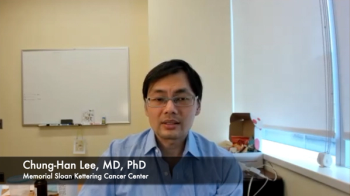
Chung-Han Lee, MD, PhD, spoke about interesting findings that arose from the KEYNOTE-146 study for patients with metastatic renal cell carcinoma.

Younger survivors of B-cell non-Hodgkin lymphoma appeared to have an increased risk of adverse health outcomes 5 or more years after diagnosis compared with older survivors.

Patients with advanced midgut neuroendocrine tumors experienced a clinically relevant improvement in median overall survival when treated with 177Lu-Dotatate compared with the control of high-dose long-acting octreotide, although the difference was not significant.

Matthew Allaway, DO, detailed benefits of using an emerging transperineal biopsy approach to identify prostate cancer in hard to access areas of a patient’s prostate.

Patients with non-melanoma skin cancer achieved promising antitumor activity following treatment with RP1 and nivolumab.

Assessing adverse effects with a toxicity index and patient-reported outcomes at baseline and treatment-emergent toxicities revealed insights into why postmenopausal patients with ductal carcinoma in situ discontinued endocrine therapy.

Research presented at the 2022 Multidisciplinary Head and Neck Cancers Symposium highlighted the potential to detect oropharyngeal cancer recurrence using circulating tumor tissue modified viral–human papillomavirus DNA.

A presentation from the 2022 ASTRO Multidisciplinary Head and Neck Cancers Symposium showed a de-escalated radiotherapy dose to 54 Gy vs 70 Gy led to better measures of toxicity in those with p16+ oropharyngeal squamous cell carcinoma.

In a pre-planned pooled analysis of data from the MC1273 and MC1675 trials presented at the 2022 ASTRO Multidisciplinary Head and Neck Cancers Symposium, de-escalated adjuvant radiation therapy met criteria for efficacy in human papillomavirus–related oropharyngeal squamous cell carcinoma.
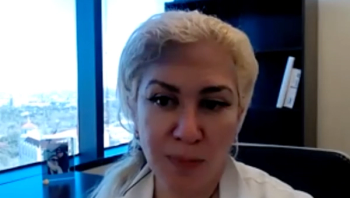
Eleni Efstathiou, MD, PhD, spoke about the positive results seen in the phase 3 MAGNITUDE trial in patients with metastatic castration-resistant prostate cancer harboring homologous recombination repair gene alterations who were treated with a niraparib-containing regimen.

Following 2022 ASCO GU, Daniel P. Petrylak, MD; Benjamin H. Lowentritt, MD; Alan H. Bryce, MD; and Tanya Dorff, MD, engage in a rapid-fire question-and-answer 2-Minute Drill program, hosted by CancerNetwork®. Topics include most surprising new data, what needs follow-up, and shameless plug.

Women undergoing treatment with immunotherapy, targeted therapy, or chemotherapy in cancer clinical trials were at a significantly increased risk of severe adverse effects compared with men.

A health-related quality of life assessment found an association between worsened self-reported fatigue, cognitive function, and physical function, with enzalutamide treatment for patients with metastatic, hormone-sensitive prostate cancer but improved deterioration-free survival for overall health and quality of life.

Patients with advanced endometrial cancer derived a more notable survival benefit after being treated with lenvatinib and pembrolizumab compared with chemotherapy alone.
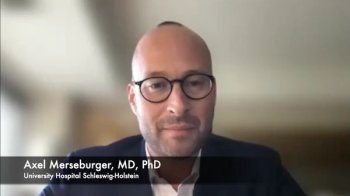
Axel Merseburger, MD, PhD, spoke key results of the PRESIDE trial, which examined continuous enzalutamide to treat patients with metastatic castration-resistant prostate cancer and progressive disease.

Findings from a systematic review that evaluated bevacizumab, trastuzumab, and rituximab vs respective biosimilars highlighted little difference in outcomes between treatment options.